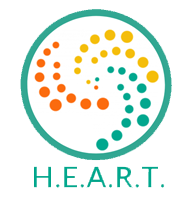How working in recovery has worked wonders for my studies
17 October, 2022
Working in Programme Support, in Gateshead, while studying towards a degree in Psychology, it's been a busy year for Jennifer Armstrong. And as she begins the final year of study, she reflects on what she's learned about the role, and herself, while working for Recovery Connections.
I arrived at the charity in 2021, after choosing the placement module option during the second year of my degree. After a full year of online study (which was unavoidable - but not what I was really expecting from university!) having a physical placement to attend was great.
The first 8-10 months I worked in Middlesbrough, not far from my home town of Hartlepool. I worked between the recovery community in the centre of town, and the charity’s residential rehabilitation facility. This is where I discovered a genuine joy for the work I’m lucky enough to do now, in Gateshead, and will be completing around university commitments during this academic year.
It was during my time in Middlesbrough that I also found the work the charity does with and for students. I joined the Students in Recovery Lead, Adam Petson, at an open day on the Teesside University campus, where he has been representing the charity for several years.
Among multiple other stalls, support groups and activities, the likes of which will be popping up across universities all over the country this month, was the offer of addiction and recovery support - for students. And not only for those who may need it directly, but the others who may have experienced addiction in family members in the past.
My first thought was “I want this at my University. I want this for every student who might need it.” Unfortunately though, this support is rare at UK universities, other than signposting to other services. Which is strange, when you think about it, as it’s widely acknowledged that students face so many pressures related to drugs and alcohol, from the moment they arrive at fresher’s week. We’re warned about that, but not really given any advice about what to do if it gets too much.
Going out. Spending all of your loan. Constant partying. Even if that’s not the reality, it remains the perception. And when you add the sense of being away from home, while also knowing you need to put yourself out there, connect, and make friends, it’s a lot of pressure. Plus, a lot of potential for drinking and drug-taking. This, in turn, can result in a problem not being recognised as such. The excess is seen, instead, as the norm.
And if there remains some sort of idea that you can be too young to develop dependency, that’s simply a myth. I’ve seen people myself who were younger, much younger than student age, whose experimenting turned into something else, even before they left school.
Is this part of the stigma around addiction? That it only affects certain people, or a certain age or background? Perhaps. I feel that with mental health, there’s been plenty of positive progress when it comes to reducing stigma. But with addiction there’s still a heavy burden of stigma surrounding it, which in turn overlaps with the concept of recovery. I feel that this definitely creates a barrier for people who might need to reach out for help. I’ve even faced stigma when explaining to people what I do for a living, and what I intend to do when I graduate.
“Are you sure that’s what you want to do? It’s going to be so difficult!” To which I reply, in summary, yes, and yes, probably - but it’s also so rewarding. So there’s still a lot of work to be done on reducing this stigma, although slowly but surely we are making progress.
When I began my role, I went into it with a very open mind. And it’s been opened even more, ever since. I wasn’t starting blind, as I did have some family and personal experience on the topic, but I certainly didn’t realise how big the recovery community actually is. And the level of support that’s out there.
Working for a Lived Experience Recovery Organisation has seen my understanding of the value of lived experience evolve immensely. It brings a totally different aspect into how a person can be supported. As a student I’d only seen the clinical side of things; psychiatrists, psychologists, theory. But no matter how much of that kind of knowledge you possess, you can never fully relate to others unless you’ve been through it yourself.
That’s what Recovery Connections so effective, from the day-to-day community support it provides, to the services it provides for students. It’s people helping others, by sharing the experience of how they faced similar challenges, and walked the same journeys. If any students, of any age, find themselves troubled by alcohol, drugs, or behaviours this academic year, I’d suggest they get in touch as soon as possible.
